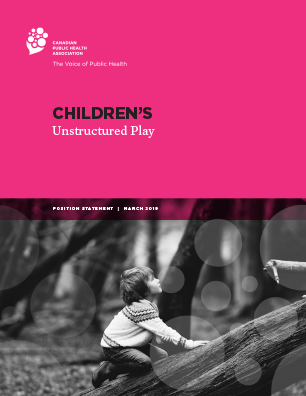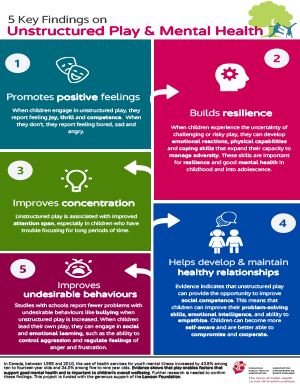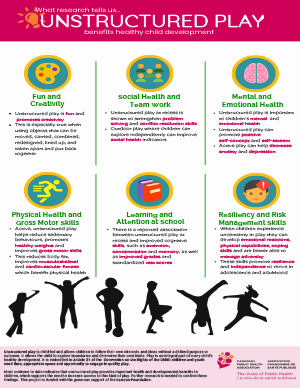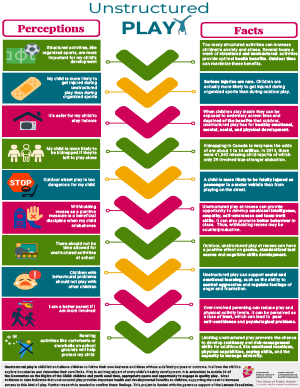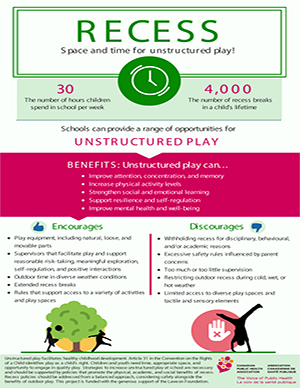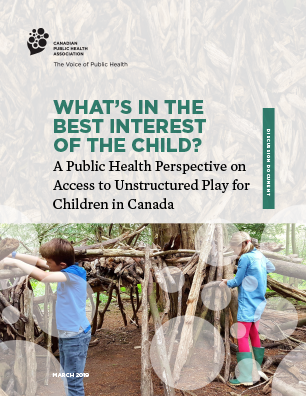-
About Unstructured Play
Unstructured play is a child's right and is integral to healthy development. It is play where children follow their own ideas without a defined purpose or outcome. Unfortunately children’s access to this type of play is increasingly limited. The goal of this project is to reduce this trend by providing tools and undertaking advocacy.
The term unstructured play does not have an academic definition, but has come to be used as a generic term to represent child-led play that takes place preferably outdoors but also indoors, and includes the concept of risky play. Its use was developed to reflect the concerns of decision-makers regarding the use of the term “risky” to describe play.
CPHA acknowledges and thanks the Lawson Foundation for its generous support. We also thank all those who were funded through the Lawson Foundation’s Outdoor Play Strategy for their continuing support in reviewing and providing directions for various components of this work. We especially thank the Project Advisory Committee for its ongoing direction and support.

